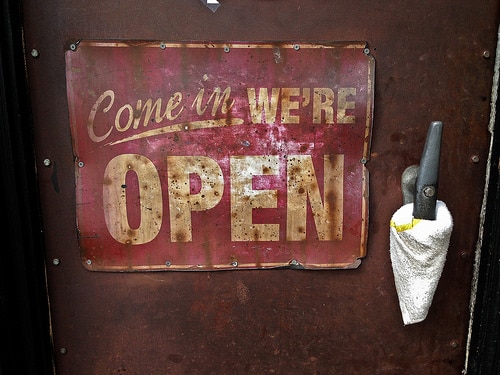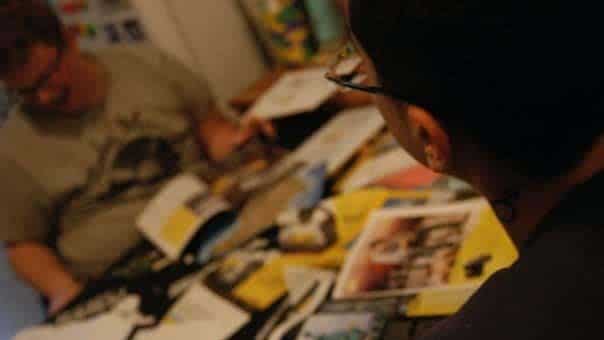7 Habits of Highly Effective Allies
You started down the road of being an ally for LGBT people and now you find yourself realizing that this is hard work, that you don’t have it all figured out, and that sometimes people still get upset with you. Fear not! I put together seven habits of highly effective allies which will help get you started and keep you going in the right direction. Whether you are brand new in your support of LGBTQ people or years in the making, you’ll learn something from this.
1) Continue your education
There’s more to being an ally than saying “It’s not a sin to be queer.” Once you get there, keep going. Learn about the many needs of LGBTQ people: housing, employment, health care, immigration, education, safety. Meet with queer people that aren’t on billboards and in TV ads. Learn about the needs of homeless queer youth, of genderqueer people, of kids who are transitioning, of immigrant queers, of serodiscordant couples. This is a lifetime journey and you will be so much more effective when you embrace growth and learning all along the way, always refusing to stagnate.
2) Pass the mic
It’s great that you are willing to speak up for us. World changing in fact. Step one is to recognize that you, as a straight cisgender person, receive unearned benefits at the expense of LGBTQ people. It is easier for you to get into school, to be ordained, to get married, to immigrate, to seek medical attention, to be published, to be invited to speak at a conference. You need to know and recognize this. And then you need to do something about it. Refuse to speak on straight-only panels. Invite LGBT people along on your speaking gigs. Interview or guest post LGBT writers, theologians, businesspeople, actors, artists, and activists on your blog or website. Recommend or distribute resources created by queer people rather than answering the question yourself.
3) Remember that oppression is an onion
Even straight white males are not immune from marginalization. Perhaps you are Muslim. Maybe you are in recovery from drug or alcohol addiction. Or have spent time in jail. Or have a mental health condition. Or a physical disability. Maybe your body size is not the one idealized by our culture.
There are a variety of ways that straight men and women suffer marginalization: gender, race, skin color, ethnicity, religion, body size, physical and mental capacities, disease/carrier status, incarceration record… the list goes on. You don’t need to be perfect. In fact, recognizing the ways in which we are both oppressor and oppressed is a key step in a path toward liberation for all. Allow us to work in solidarity with you too. You don’t need to be our savior (and we don’t need to be yours). We can be in this together, as partners!
4) Get in the way
We can speak for and defend ourselves and still there are times when we want your help. It can be tiring to explain over and over again why we think it’s OK to be gay or why we need to transition. Help us when we are exhausted by taking over those conversations. Stand in the way–literally–when people denigrate us with their words. My good friend Sam Crowell spoke up when a man entered our church and started spewing anti-gay rhetoric. As someone who works in solidarity with LGBTQ people, it’s important that when push comes to shove, you’ll have our back, you’ll get in the way, you’ll act up. It may be uncomfortable, it might get you in trouble, that’s part of the package: welcome to our lives.
5) Get messy
Let’s be honest right up front: straight people will give you flack for being difficult and pushy, for always talking about “the gay thing,” and for being hypersensitive. And queer people will give you flack for not doing enough, for being too patient, for not doing it right. At some point, you might lose friends, family, money, or jobs. Jay Bakker lost almost all funding for his church, Revolution NYC. This is messy stuff. Embrace the mess, get messy.
Be willing to be uncomfortable. Be gracious and thankful when corrected. Allow yourself to let go of the comfort and safety that comes privilege. It’s messy work and it is also gratifying, life-giving, sacred work. And with a heaping of grace, we can all get through this.
6) Engage in other solidarity work
Make sure that as you pursue freedom for LGBT people, you don’t throw other people under the bus. Don’t demonize unmarried people, polyamorous people, pagans, or feminists to help us gain rights. Don’t forget about queer people living under US military occupation, or indigenous queer people whose stolen lands we live on. Don’t ever say “They’re just like you, not like those people.” There’s enough room for everyone. Foster alliances and collaborations, rather than divisions.
7) Listen to us
I saved the most important one for last so it will be fresh in your mind. This is absolutely crucial. Listen to us. Always. Without exception. If we tell you that what you said is hurtful or harmful, it is: apologize and stop it. If we tell you that your strategy is counterproductive, stop it. If we tell you that you’re doing a great job, believe us! If we tell you that your association with a person or organization undermines our trust in you, it does.
You might disagree, we might be at odds with your friends, it might be uncomfortable. If you want to work in solidarity with us, you need to trust us. This is about us, our needs, our safety, our liberation.
Bonus: Focus more on working in solidarity rather than self-identifying as an ally
Instead of self-identifying as an “ally” focus more on working in solidarity with LGBTQ people. Calling yourself an ally places the focus on yourself rather than on LGBTQ liberation. It also presumes that you are doing productive, useful work. Many straight people are (Jay Bakker and Onlielove Alston are excellent examples). If you are, we’ll tell you! Instead, focus on the work that needs to be done and on partnering with and following LGBTQ. We need to claim our lives, humanity, autonomy, and freedom. We absolutely want you along for the journey and at the same time we do not want you to (even accidentally) revictimize us by taking away our voices, agenda, and self-direction.








